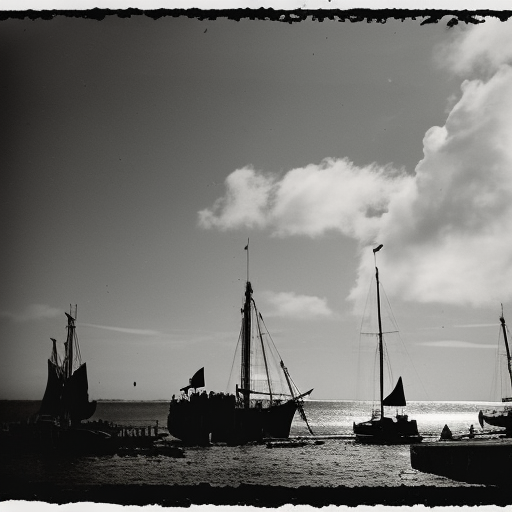Battles of Barfleur and La Hougue
The Battles of Barfleur and La Hougue were a series of naval engagements that took place in 1692 during the Nine Years’ War. These battles were fought between the English and Dutch fleets, led by Admiral Edward Russell, and the French fleet, commanded by Admiral Anne Hilarion de Tourville. The outcome of these battles had significant implications for the balance of power in Europe.
Background:
At the time, France, under the rule of King Louis XIV, was the dominant power in Europe. Louis XIV sought to expand French influence and control by establishing a strong navy. In response, a coalition of European powers, including England and the Dutch Republic, formed to counterbalance French ambitions.
The Battle of Barfleur:
The first major engagement of the campaign was the Battle of Barfleur, which took place on May 29, 1692. The English and Dutch fleets, numbering around 99 ships, engaged the French fleet of 44 ships near the coast of Normandy, France. The English and Dutch forces, under the command of Admiral Russell, employed superior tactics and coordination to gain the upper hand. Despite initial resistance from the French, the combined Anglo-Dutch fleet managed to inflict heavy damage on the French ships, forcing them to retreat.
The Battle of La Hougue:
Following the Battle of Barfleur, the English and Dutch fleet pursued the retreating French ships to the nearby anchorage of La Hougue. On June 2, 1692, the Battle of La Hougue ensued. The French fleet, now reinforced with additional ships, attempted to defend their position. However, the English and Dutch forces launched a series of attacks, bombarding the French ships and their fortifications. The French resistance was eventually overcome, and many of their ships were either captured or destroyed.
Consequences:
The Battles of Barfleur and La Hougue were significant turning points in the Nine Years’ War. The defeat of the French navy severely weakened Louis XIV’s naval power and disrupted his plans for expansion. The French loss also bolstered the confidence of the English and Dutch fleets, establishing them as formidable naval forces in Europe.
Furthermore, the battles had broader geopolitical implications. The French defeat at Barfleur and La Hougue prevented a potential invasion of England by the French navy, which could have altered the course of European history. The victories also helped to maintain the balance of power in Europe, preventing French dominance and ensuring the continued influence of the coalition of European powers.
Legacy:
The Battles of Barfleur and La Hougue are remembered as significant naval victories for the English and Dutch fleets. These battles showcased the effectiveness of coordinated naval tactics and highlighted the importance of naval power in shaping the outcome of conflicts. The victories also solidified the reputation of Admiral Russell as a skilled naval commander.
In conclusion, the Battles of Barfleur and La Hougue were pivotal engagements in the Nine Years’ War. The English and Dutch fleets successfully defeated the French navy, preventing their expansion and maintaining the balance of power in Europe. These battles demonstrated the importance of naval supremacy and had far-reaching consequences for the geopolitical landscape of the time.












